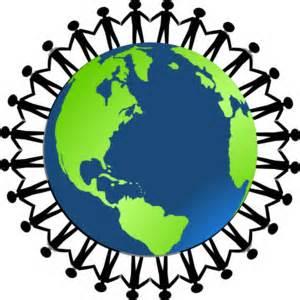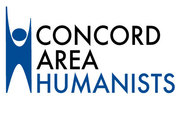Posted on January 6, 2015 by David

In today’s (January 6, 2015) The Guardian, there is an editorial entitled “If Peace On Earth is Our Goal, Atheism Might Be the Means to That End” by Adam Lee. It is a great article revealing several results of various polls on religious societies and non-religious societies throughout the world. The comments are sufficient themselves to press their points so I am just going to excerpt quotes from it.
http://www.theguardian.com/commentisfree/2015/jan/06/peace-on-earth-athe...
“In America, millennials are the largest and least religious generation in the country’s history. The trend toward secularization in the US mirrors the movement in Europe and throughout the developed world. And poll after poll have shown that the nonreligious also lean more progressive and more pacifist on a wide variety of issues relating to violence: torture, the death penalty, corporal punishment, military adventurism and more.”
“A Pew poll from 2009, well before the Senate released its devastating torture report last month, asked whether torturing suspected terrorists could be justified found that the non-religious were most opposed to torture, with a combined 55% saying that it could rarely or never be justified. Gallup has also found that people with no religious preference are less supportive of the death penalty than any group of Christians. The non-religious are also among the most likely to say the invasion of Iraq was a mistake. The religiously unaffiliated are also less likely than Christians to believe that the US is superior to all other countries in the world, a hyper-patriotic attitude that’s hardly conducive to careful reflection about the use of American military power.”
“Religion’s violent tendencies also tend to be reflected in its adherents’ personal lives. The social scientists Christopher Ellison and Darren Sherkat found that conservative Protestants disproportionately support the use of corporal punishment, such as spanking or whipping, for children. The researchers speculate that this stems from theology: Christians who promote a literal interpretation of the Bible tend to believe that human nature is inherently evil, and that sin demands severe punishment. What’s more, the Bible itself (among itsmany other bloody verses) specifically calls for beating children in verses such asProverbs 13:24. (By contrast, freethinkers like the famous American orator Robert Ingersoll recognized the cruelty of corporal punishment as early as 1877.)”
“As long as humanity was in thrall to the violent morality of religious texts, our societies were warlike and cruel. As the American revolutionary Thomas Paine said, belief in a cruel god makes a cruel man. It’s only in the last few decades, as we’ve begun to cast these beliefs off, that we’re making real moral progress.”
“The influence of the non-religious shows is also evident on an international scale. The nonprofit group Vision of Humanity publishes an annual Global Peace Index, which ranks countries on a broad spectrum of indicators, including violent crime, incarceration rates, weapon ownership, and military spending. Sociologist Phil Zuckerman summarizes their results in his new book Living the Secular Life:”
'...according to their most recent rankings, among the top ten most peaceful nations on earth, all are among the least God-believing – in fact, eight of the ten are specifically among the least theistic nations on earth. Conversely, of the bottom ten – the least peaceful nations – most of them are extremely religious.'"
The article goes on to say that not all religious people are violent, and not all non-religious people are non-violent. But it mentions that Unitarians and Quakers especially have “played an important role in peace movements”. The article also mentions that there are “prominent atheists like Sam Harris and the late Christopher Hitchens who have been entirely too cavalier about imperialism and military aggression.”
The article ends with, “But in general, the trend is that, as the world becomes less religious, we can expect it to become even more peaceful.”
David Kimball


3 Comments
It's great to see we're making progress as a species away from the horrors of religion.
Very interesting, and troubling to me as a Christian. I DO hope that humanists will come together and create organizations that serve the public. Christian organizations establish hospitals, schools, orphanages, adoption agencies, social service organizations, refugee resettlement programs, etc. What have humanists accomplished, beyond communicating their thoughts?
Good point Bruce. Faith motivates a lot of good in the world. There are explicitly Humanist charities, like Foundation Beyond Belief, but many more secular organizations that make the world a better place, like the Red Cross, Doctors Without Borders, UNICEF, Save the Children, etc. In the past, organizations like the Ethical Culture Society (now American Ethical Union) were at the forefront of public service but now it's true that most Humanist organizations put their support behind secular efforts that include all, religious and not, and serve all without proselytizing.
Add your comment